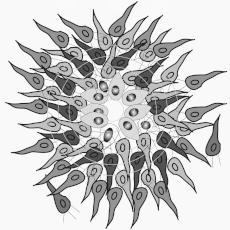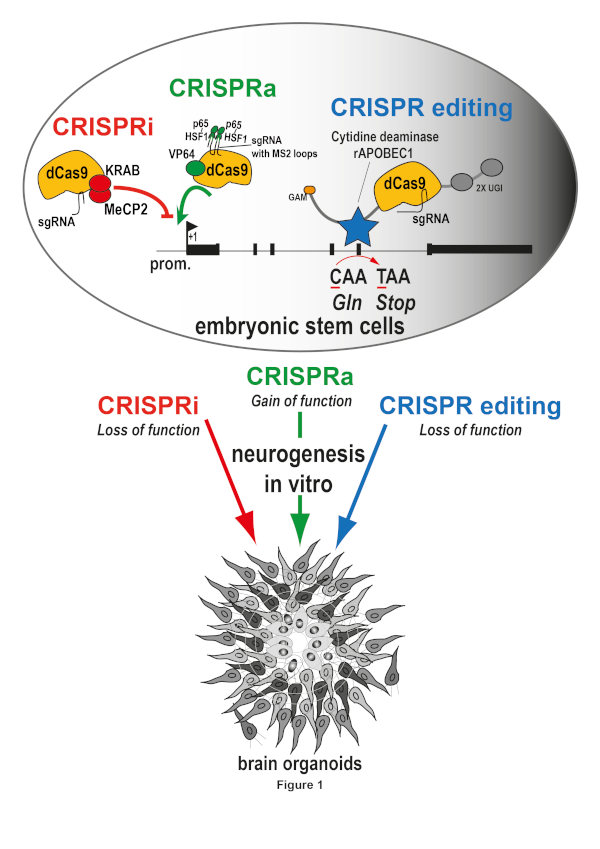Team Laurent JOURNOT
Functional genomics of imprinted genes
Project Role of imprinted genes in neurodevelopment
RESPONSABLE

IGF staff involved
Anne-Charlotte FROMAGET
Thèse INSERM
Anne LE DIGARCHER
AI CNRS
Annie VARRAULT
CRHC CNRS

Imprinted genes are involved in rare neurodevelopmental disorders whose etiologies remain elusive. To understand how imprinted genes affect neurodevelopment, we use a model of embryonic stem cell differentiation into brain organoids that recapitulate well neurodevelopment and genomic imprinting in vivo, coupled with CRISPR/Cas9-based genetic engineering tools (Figure 1). These loss- or gain-of-function organoids for the imprinted gene of interest are then analyzed using highly resolutive techniques (RNA-seq, TT-seq, Cut & Run…).
Model to study the role of imprinted genes in neurodevelopment.
Mouse embryonic stem cells (mESCs) with a gain or loss of function for the imprinted gene of interest are generated using CRISPR/Cas9 tools (CRISPR inhibition or CRISPR activation to repress or activate transcription respectively, or CRISPR editing to introduce a premature stop codon).
These CRISPR-modified mESCs are then differentiated into brain organoids and analysed for a series of parameters, including cell fate.
Adapted from Le Digarcher A., et al, Neuromethods, 2022

Main publications
• Kumar P., et al. (2023) Frontiers in Genetics;14,1147222
• Le Digarcher A., et al. (2022), Neuromethods, vol 185
• Varrault A., et al. (2018), Stem Cells, 36(2)
• Bouschet T., et al. (2017), Cerebral Cortex, 1;27
Funding
• 2023-2027 ANR CORGI – Porteur
• 2023-2026 ANR COBIOSTEM- Partenaire
Collaborations
• Philippe ARNAUD (Clermont-Ferrand)
• Afsaneh GAILLARD (Poitiers)
• Louis LEFEBVRE (Vancouver)


